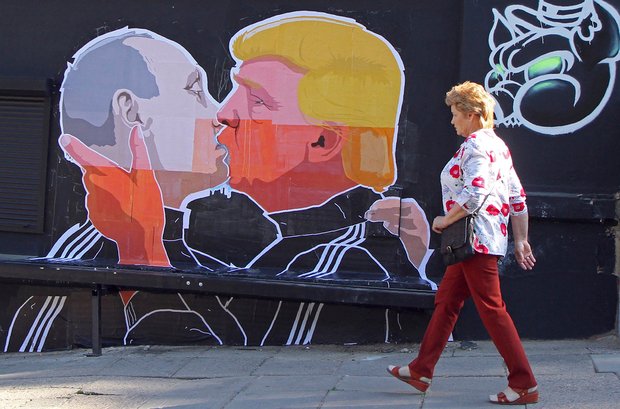SAEED NAQVI
[dropcap]W[/dropcap]hile New Delhi is busy with the demonetization upheaval, it may find itself paces too slow in coping with the new strategic dynamic engulfing the region.
Neither Kabul nor New Delhi can be sanguine about the high-level meeting in Moscow on Afghanistan to which China and Pakistan were invited. This follows Moscow’s declaration that it does not consider Taleban as the enemy. In fact, Afghan Taleban can be allies against Al Qaeda and the Islamic State.
A piqued Ahmad Shekib Mostaghni, spokesman for the Afghan Foreign Ministry, said “even if such talks are organized with goodwill, they cannot yield substantial results because there is no one from the Afghan side to brief the participants about the latest ground realities”.
New Delhi, preoccupied otherwise, has not reacted to the Moscow meet. Apparently, the Russians took the Indian Foreign Office into confidence that “it was only about the internal situation in Afghanistan”. Russians are concerned about the rise of the Islamic State in Afghanistan, a diplomatic source said.
Does New Delhi accept Moscow’s anxieties about ISIS in Afghanistan? And does it go along with Moscow and Beijing’s evaluation that Taleban are possible allies against the more infectious ISIS? But Washington has invested blood and treasure fighting the Taleban for 14 years. Is New Delhi at a trijunction?
In diplomacy, friendly gestures come with disguised ambiguity. With the Trump Presidency, a new chapter may be opening in US-Moscow relations. In preparation for this phase, Moscow would like to retain some pressure points to determine the pace of new equations. Kabul may be one such pressure point.
Should Trump turn upon Tehran over the nuclear deal, there is something in the Afghan cauldron for Iran to stir too.

So, the New Year begins with many new events to juggle with. Of the scattered scratches on my mind that 2016 leaves behind, the deepest one was etched in New York. At my friend’s DUMBO loft in Brooklyn on the night of November 8, an assortment of friends from every walk of life, left champagne bottles uncorked because the ground from under their feet moved when Hillary Clinton lost.
If you make Bernie Sanders impossible, I said then, you make Trump inevitable.
American exceptionalism notwithstanding, the popular mood globally across liberal democracies was the same — a disgust with establishments foisted on them by globalization and crony capitalism.
The assault on the establishment has come from the Left as well as the Right. Establishments, like the skilled matador, have deflected the people to the Right. This is their preferred fallback position. Hence, No to Bernie Sanders. Yes, to Trump. And now they are beating their breasts!
In diplomacy, friendly gestures come with disguised ambiguity. With the Trump Presidency, a new chapter may be opening in US-Moscow relations. In preparation for this phase, Moscow would like to retain some pressure points to determine the pace of new equations. Kabul may be one such pressure point.
Well, let it be recorded, the American establishment did try to write itself into the script too. Clinton, after all, was nothing if not the establishment. Yes, people think I am untrustworthy. Yes, they think I am dishonest. Yes, I goofed in Benghazi… but still vote for me because Russians have hacked into my email. Bill Clinton went one better. Did I not tell you, he said to an interviewer, that Boris Yeltsin was a much better President than Putin.
Who knows the new Trump team from Forbes Who’s Who may reassert an old motto: the Business of America is Business. This encourages one to conclude that Trump would like to restore America as the land of unvarnished capitalism minus the hegemonic distortions, one which has made the US the world’s most hated nation even in influential enclaves of Europe.
Whatever else Trump may achieve, will he ever succeed in weaning away the Occupy Wall Street youth Bernie Sanders had mobilized? If not, he will begin to look like a semi finalist until the next elections in 2020.
Establishments may be able to channelize popular preference away from the Left, once or twice, but they cannot make a habit of it.
Ultimately, all speculations will be tempered by a Realpolitik, like the one opening up to India’s north. Counter-moves will come as soon as Trump finds his feet in the White House. As he surveys the scene from the Oval office, he will notice a new bounce in the Russian tread in Islamabad, Beijing, Damascus, Ankara, Manila, Kuala Lampur.
To be counted among Putin’s possible friends could well be French Presidential candidate, Francois Fillon, who defeated Nicolas Sarkozy in recent Republican party elections. Trump has already held out his hand to Putin. How firmly will he clasp it? And will the clasp last over Afghanistan too? Will New Delhi have respite from the unfolding demonetisation drama to attend to all of this?


